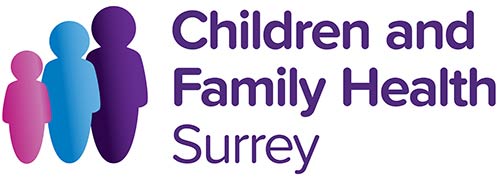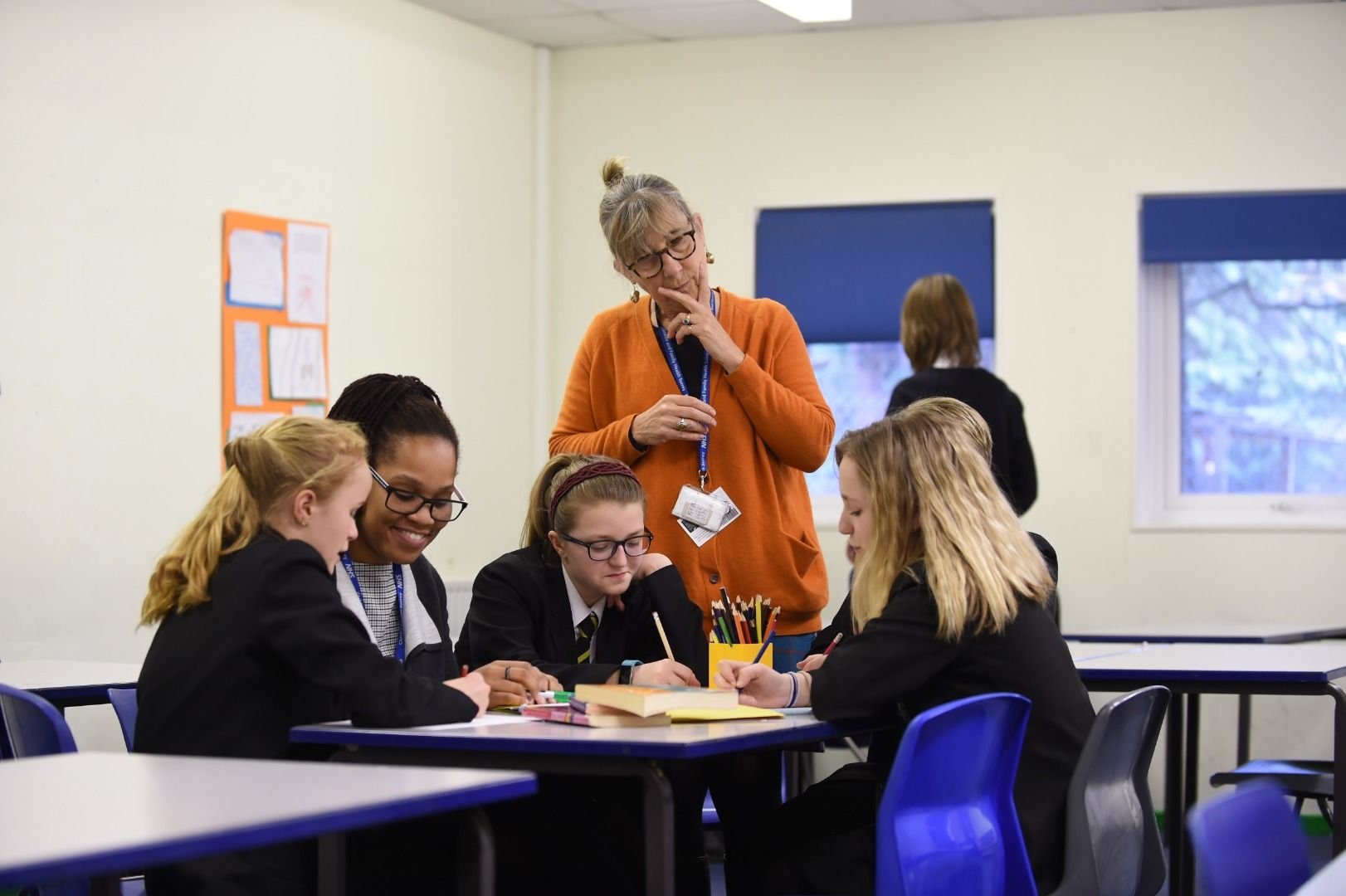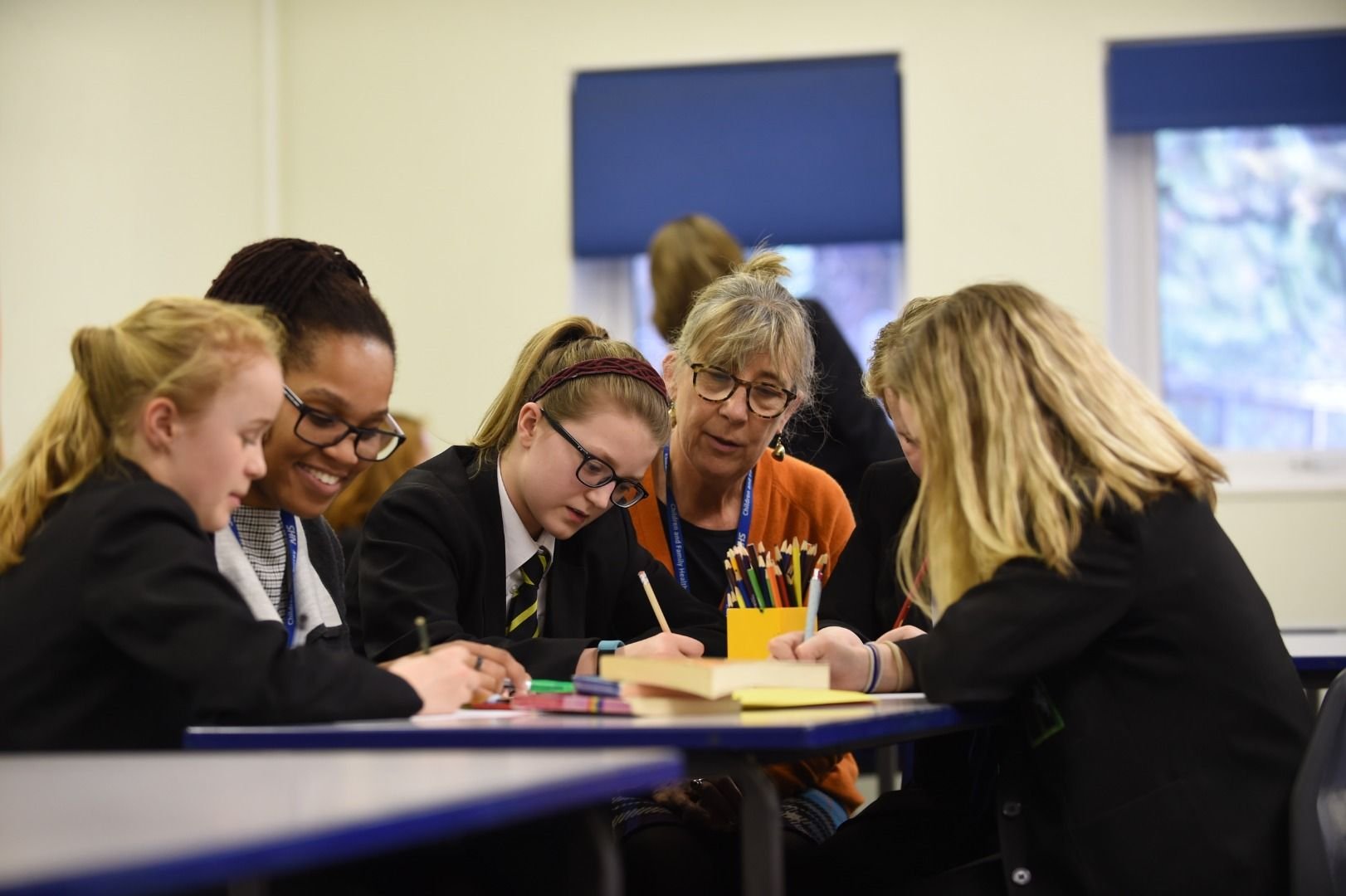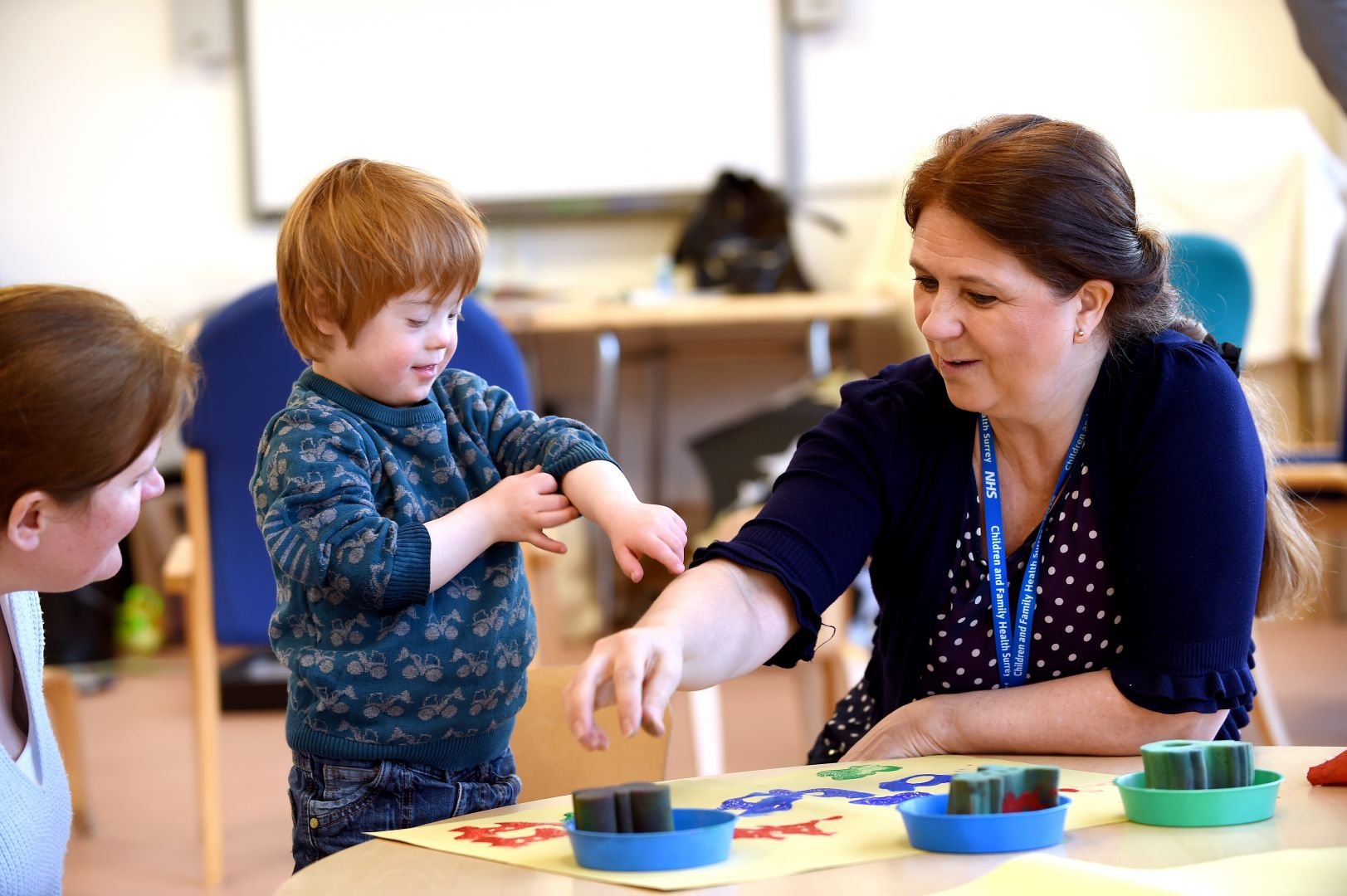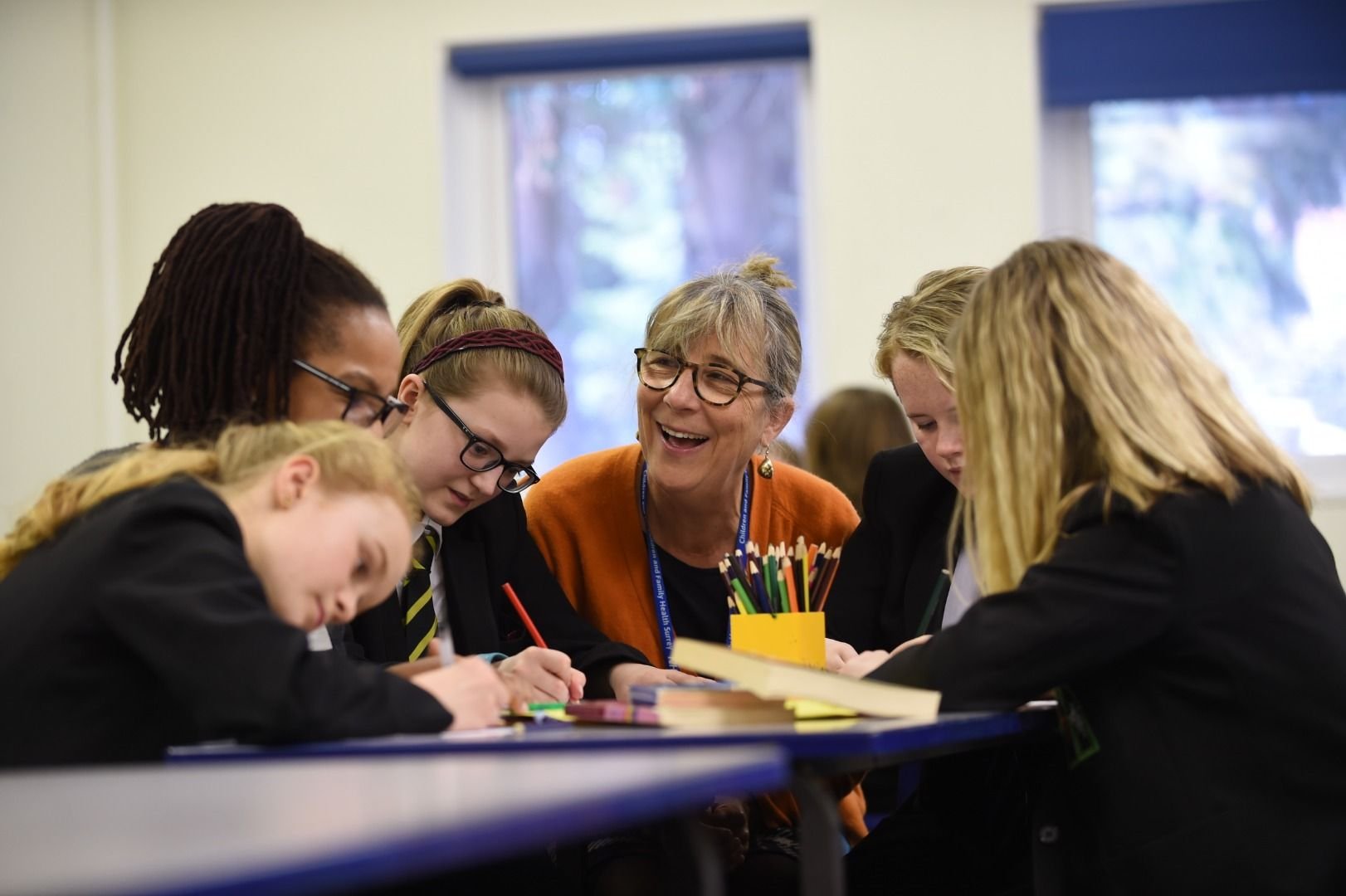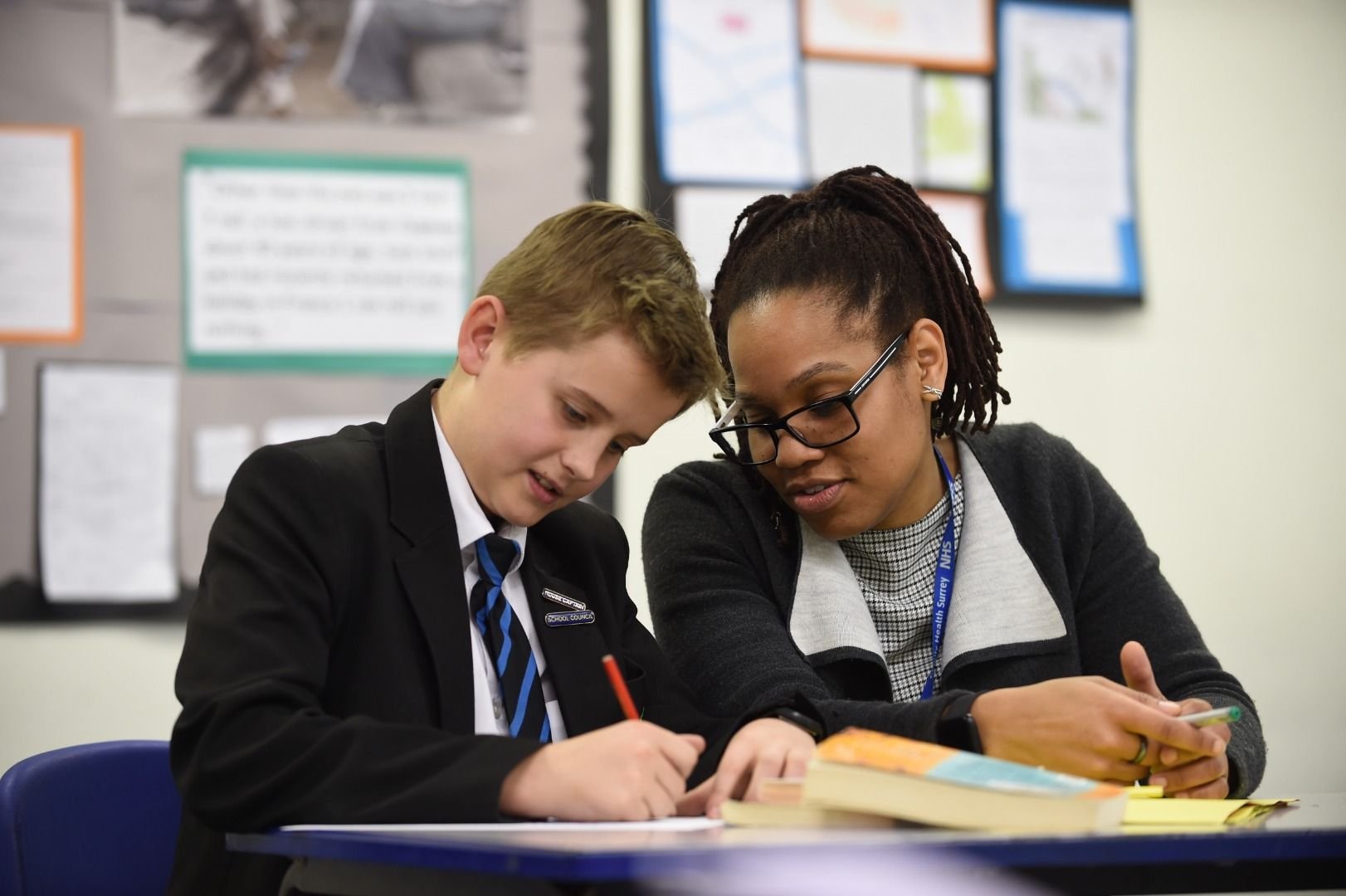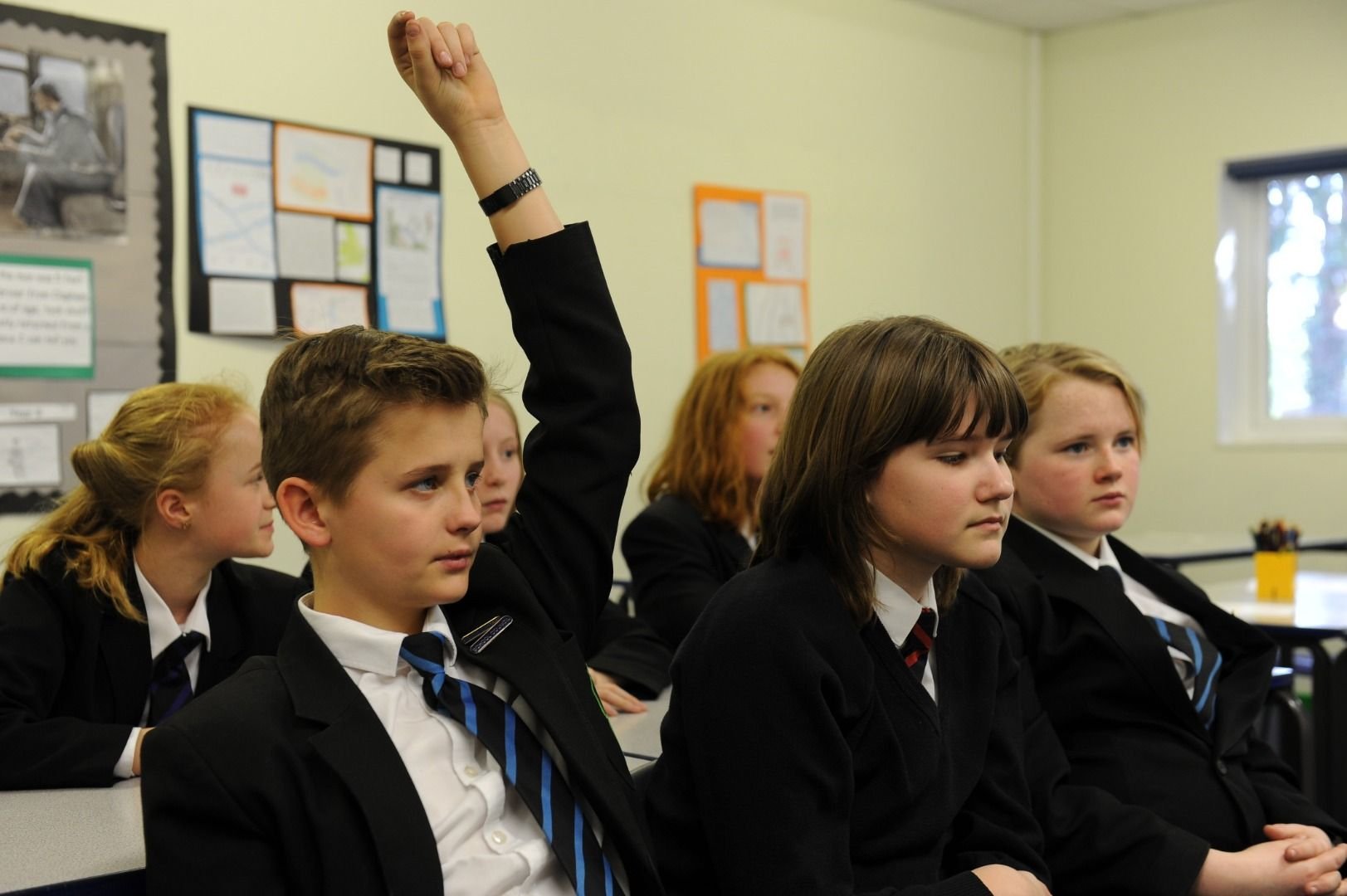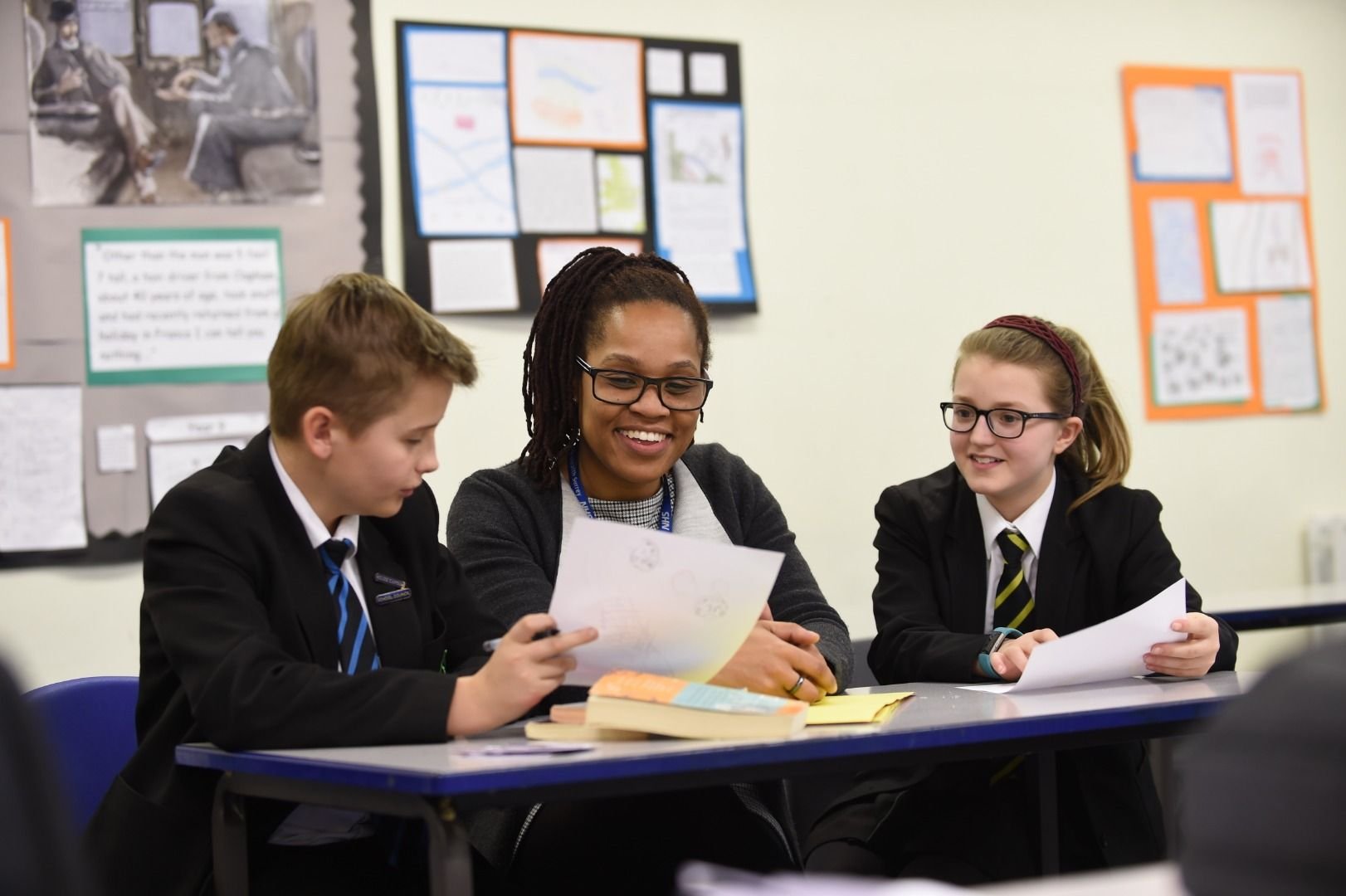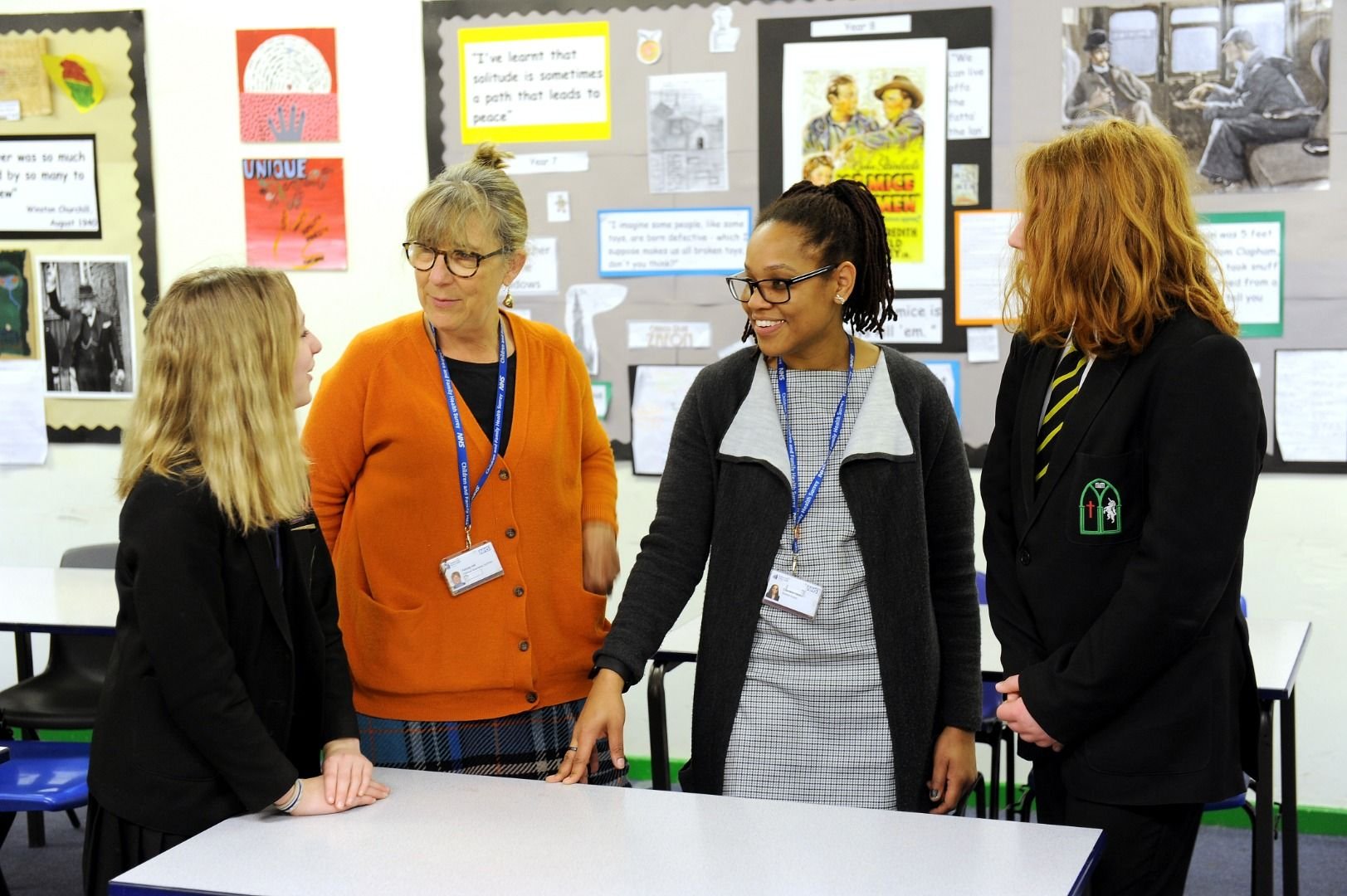Occupational Therapy enables people to participate in daily life to improve their health and wellbeing.
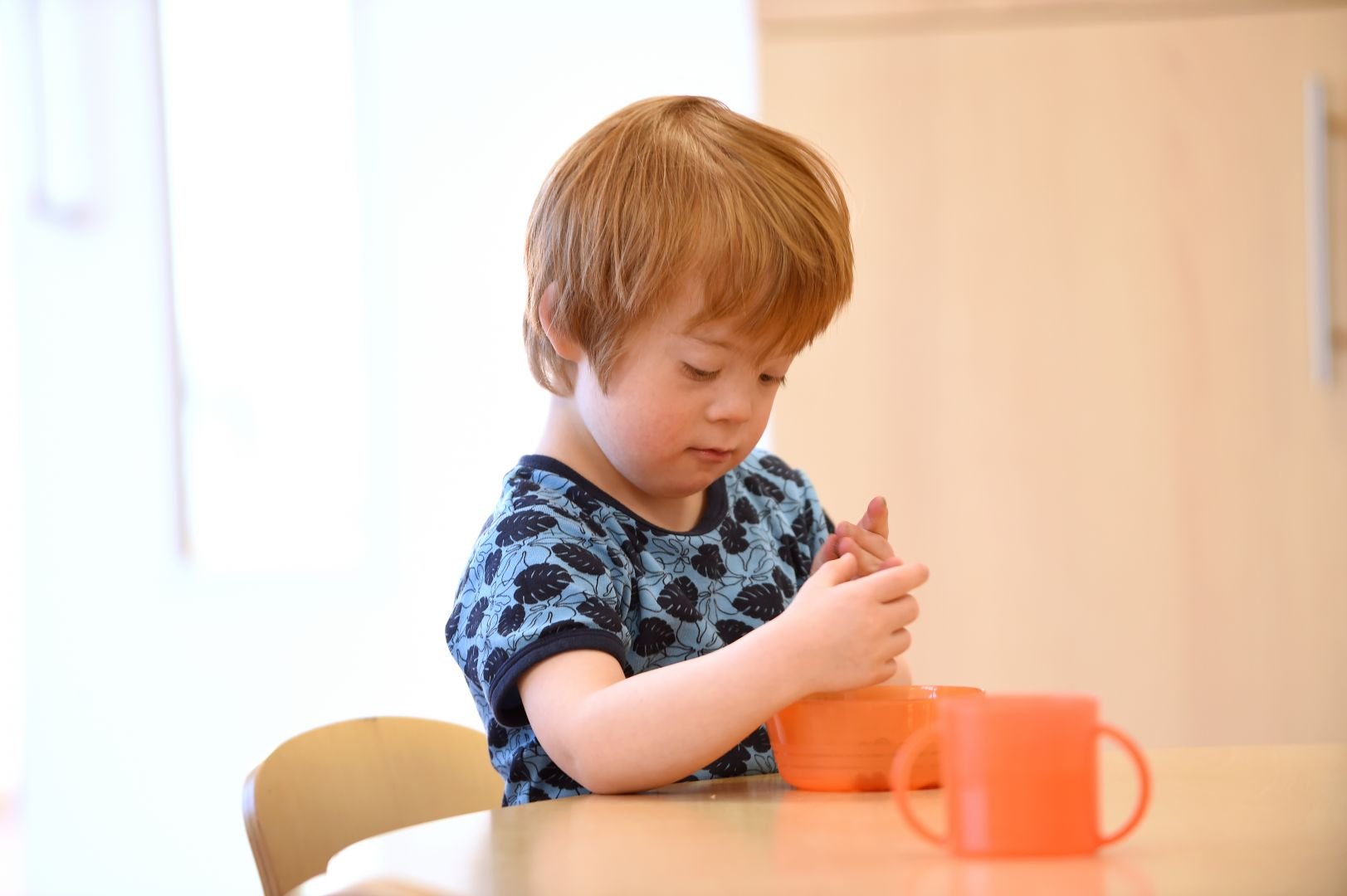
You can find further information about the Occupational Therapy service in the sections below.
You can find therapy resources including advice sheets, apps, videos and links in the 'Therapy Resources' section.
You can use the Resource Finder Tool as a 'self-service' approach to help you get the right help and support.
The service is delivered in a range of settings which includes local mainstream and special schools, early year’s settings including Children Centres the home environment and on a clinic or hospital site.
Ideally the therapist will try to see the child or young person in the environment where occupations are taking place.
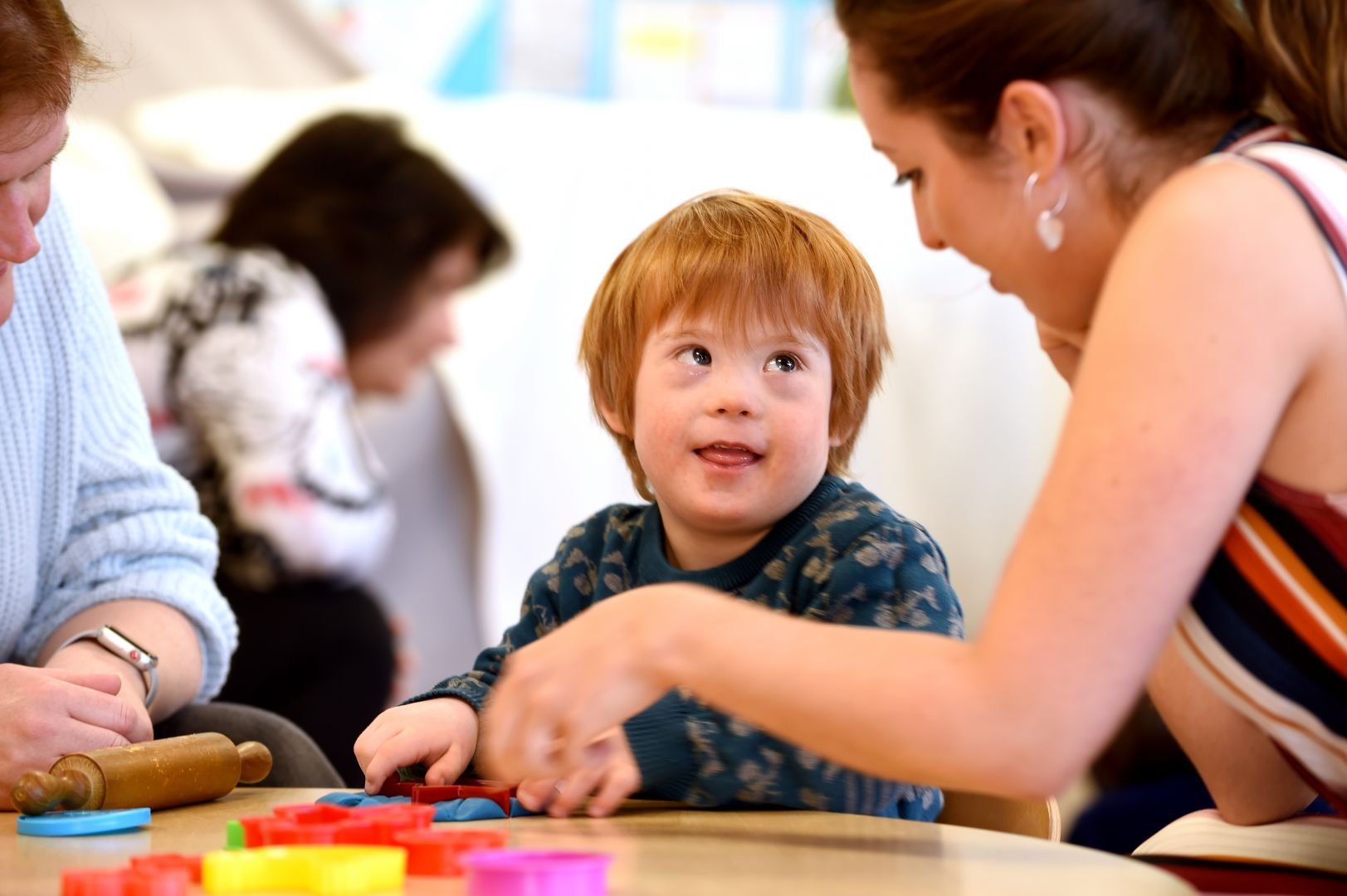
Occupational therapists will spend time finding out about the child’s and family’s typical daily life and what they want, need or are expected to do.
They will then work together with the child, family and other key people to evaluate what helps or hinders their involvement in daily life roles.
Together, possible solutions will be developed, such as exploring alternative ways of doing things or making changes to the environment to support participation.
Our Occupational Therapy Helpline is open Tuesdays and Thursdays from 1pm to 4pm on telephone 01932 558 570
We offer practical occupational therapy advice, strategies and support to schools, parents/carers and other professionals in relation to a child’s/young person’s functional and independence skills.
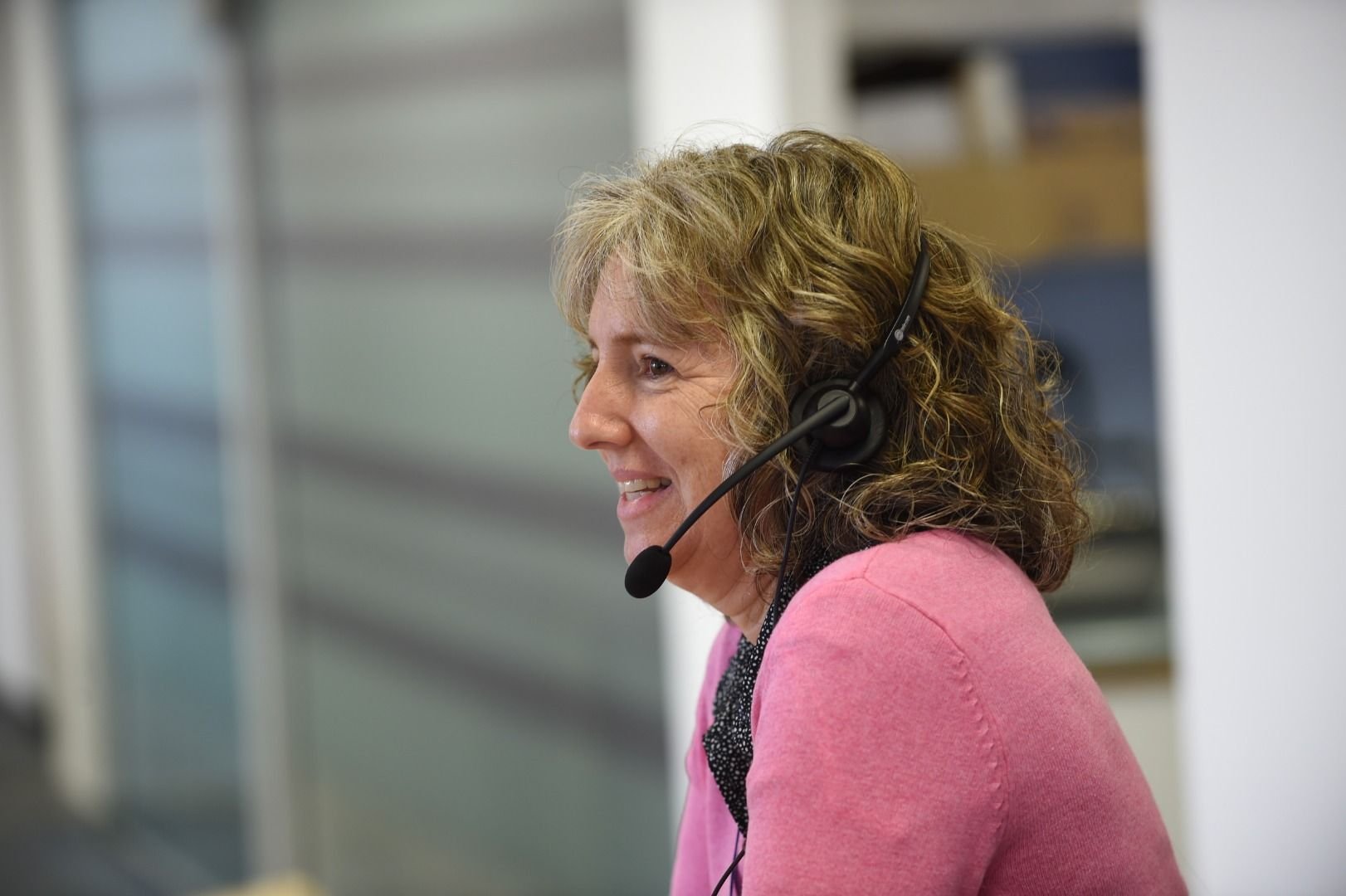
2. Targeted services designed to support children and young people who are at risk of reduced participation in everyday occupations, delivered via a telephone advice line, school/nursery link visits, workshops, training and occupational therapy resource packs and advise sheets.
3. Specialist occupational therapy services provided for children and young people with identified physical and developmental learning needs which impact on their participation in life roles. Use of an individualised intervention approach to teach strategies, recommendation of specialist equipment, and advice on environmental modifications, parent coaching approaches, individualised home and nursery/school occupational therapy advice, and specialist evidence based therapy delivered individually or in a group setting.
Whole population/universal approach and targeted service can be accessed at a pre referral stage; specialist occupational therapy requires a child to be referred.
Further information is available from Social Care Occupational Therapy (Surrey) and from the Royal College of Occupational Therapy in the Children and Young People leaflet and in the School leaflet.
The Person, environment, occupation (PEO) model is used in Surrey to focus on the child/young person’s skills, interest and motivations, the occupations they want or need to do and the environment in which they take place. These three areas all directly impact on participation in daily life.
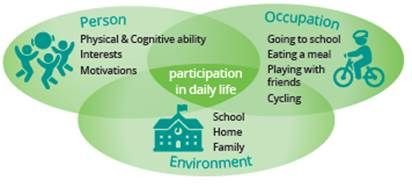
Occupational therapy is most effective when offered in the environment where the child/young person carries out their daily life activities e.g. home, nursery or school.
Therapy approaches are most effective when the occupations and activities the child/young person’s is motivated and interested in are the main focus. They should be included in their daily routines to maximising frequency.
Occupational Therapists support sensory needs which impact daily life. We support families, educational settings, children and young people to manage sensory needs through; adapting the environment, modify the activity, develop an understanding of sensory needs and use strategies for the child/young person to self-manage.
These approaches are recommended in the literature. For example, changing the sensory environment to enable the child/young person to participate in the activity, i.e. alter the temperature, reduce visual clutter, noise level, and lighting in the environment, (College of Occupational Therapists 2015.)
Supporting the parent/carer to manage sensory needs and to improve participation of children/young people in their chosen occupations through using coaching principles has shown evidence of effectiveness (Dunn et al 2012; Graham et al 2015.) The service does not provide Ayres Sensory Integration Therapy (ASI), therapy in a clinic setting which uses equipment including swings. There is not enough evidence at this present time to validate use. Instead we provide therapy linked to occupations and environments with the intention to manage (not change) the sensory needs of a child/young person (College of Occupational Therapists 2015.)
For more information on the evidence and approaches available to support sensory needs, visit the Council for Disabled Children website.
Current best practice identifies up-skilling those working in closest proximity to the child/young person. Occupational therapists work in partnership with parents, nurseries, schools and other professionals all working towards shared goals.
We use a family-centred approach where children and families are at the centre of goal setting as this is well evidenced. (Novak et al 2019).
The Everyday Living Skills Checklist for Early years and School aged children can support SENCOS in identifying children with potential Occupational Therapy needs across all the every day occupations we address. It is recommended that the checklist is used:
- to gather information when calling the helpline
- when a child is moving to SEND arrangements to identify needs (and inform earlier contact with the service and referral)
- when a request for EHCP is being made (our caseworkers have suggested that the checklist is included in the request to assess paperwork).
Training to support students in schools – run by the Occupational Therapy Service
A range of free training to support schools and education professionals is on offer from the Occupational Therapy Service in partnership with the SEND teaching schools.
This training is open to all Surrey school staff, including teachers, teaching assistants, SENCO etc. and professionals working in education services.
For future sessions and enquiries, please email courses@sendteachingschool.co.uk
All training is being hosted through an online video platform.
Children can be referred by their health visitor, GP, therapist, early years' service, hospital paediatricians, audiology service, Mindworks Surrey, other agencies or parents/carers.
Referrals are made through the One Stop Referral Service.
We recommend that children and young people are first supported through the 'Support for all' provisions. This includes:
- Occupational therapy helpline, where professionals and families can speak with an occupational therapist and identify advice and strategies that can be used immediately.
- Website occupational therapy resource finder tool, early years and school aged resource packs and key information about the occupational therapy service.
Educational settings should make contact with their local occupational therapy team to request a link OT contact. The aim of this support is to facilitate educational settings in embedding occupational therapy as part of the Ordinarily Available Provision.
Before making an occupational therapy referral the 'Support for all' provisions should have been accessed and implemented for at least three months. Please provide evidence of this when making your referral, which should detail the challenges in daily living tasks that the child / young person is experiencing. Evidence should include at least two of:
- OAP checklist
- Everyday living skills checklist with description of what supports have been put in place and accessed
- The Plan Do Review cycle record
- The resource pack record sheet
South East Surrey (Banstead, Ashtead, Leatherhead, Dorking, Tattenham) Tel: 01372 384 395
South East Surrey (Reigate, Redhill, Merstham, Horley, Oxted, Caterham, Lingfield) Tel: 01737 777 711
North East Surrey (Spelthorne, Elmbridge, Epsom, Ewell) Tel: 01932 826 500
North West Surrey (Woking, Runnymede, Surrey Health) Tel: 01932 826 500
South West Surrey (Guildford and Waverley) Tel: 01483 362 597
Therapy Resources
Resource Finder Tool
A self service approach to help you get the right help & support
